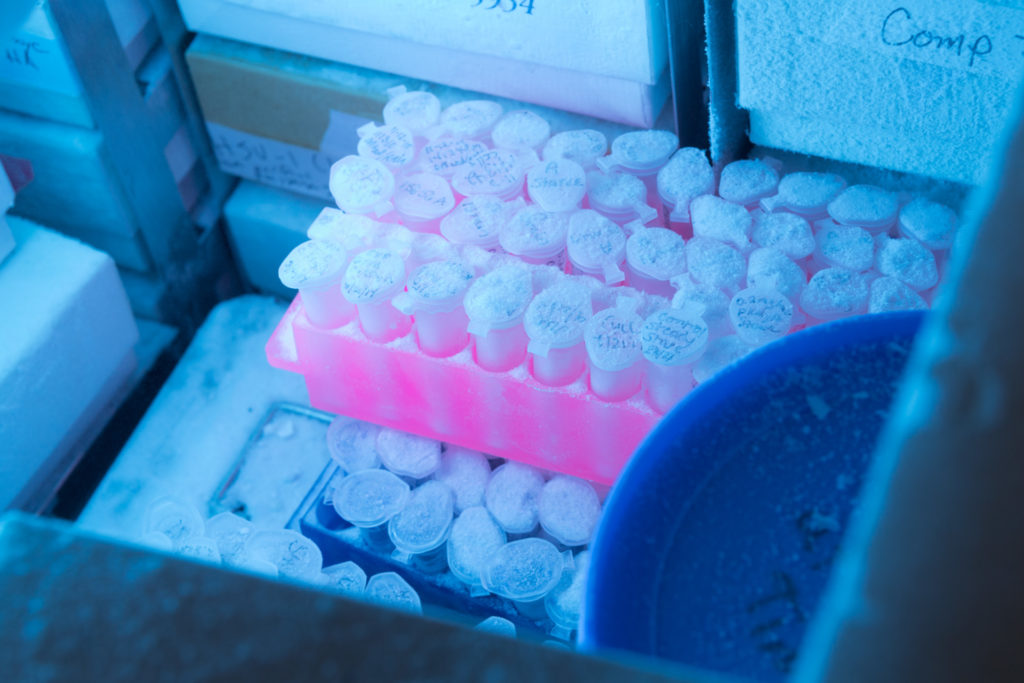
Sustainability brings to mind solar panels, bicycles and recycled plastic, glass and paper. Add ultra-low temperature, energy-efficient freezers to that list.
Stacey Baumgarn, campus energy coordinator in Facilities Management at Colorado State University, oversees a new incentive program for research labs on campus to replace old freezers with new, energy-efficient models. Departments that purchase the new equipment receive $2,000 — the amount that CSU will save over five years compared to continuing to use the old equipment.
“The electricity required to run an old freezer is the same as an average household’s electricity use for one year,” said Baumgarn.
The average lifespan of the research-grade ultra-low temperature freezers is approximately 12 years. More than 300 freezers operating at a temperature of 80 degrees below zero Celsius— to preserve precious research samples — are used in campus research labs.
Facilities Management has had a great response for the program. Last year, Baumgarn received seven requests for the incentive, and since January, eight more.
“It’s great, and I am excited to help more researchers help CSU save electricity,” he said.
The green option for research
Connie Brewster, research associate in the Quackenbush Lab in the Department of Microbiology, Immunology, and Pathology, is among those who recently applied for the incentive. Researchers there are studying viral pathogenesis and store bacteria and RNA, or ribonucleic acid, in the ultra-low temperature freezer.
She learned about the new freezer incentive from a coworker at CSU.
“We have a new project started, and we needed another minus-80 freezer,” she said. “It’s really nice to be able to choose the green option and get rewarded for that.”
Brewster said the Quackenbush Lab had already taken steps to be more sustainable. The team uses glass pipettes instead of plastic disposable ones, and they also try to re-use as much plastic ware as possible. “Go green if you can,” she said.
Researchers interested in the financial incentive should contact Baumgarn, who will verify that funds are available. “If we can provide the incentive, we will,” he said.